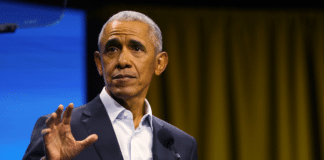Tesla, under Elon Musk’s leadership, replaced thousands of laid-off American workers with foreign employees on H-1B visas, according to reports from employees and data from the U.S. Department of Labor. The layoffs earlier this year affected approximately 15,000 U.S. workers, primarily in Tesla’s Texas and California operations.
H-1B visas are intended to help U.S. companies fill “specialty occupation” roles when qualified American workers are unavailable. However, critics argue that the program is often exploited to replace higher-paid U.S. employees with lower-cost foreign labor. During the same period Tesla conducted mass layoffs, the company reportedly requested over 2,000 H-1B visas, representing over three percent of the total available nationwide.
Sources indicate that many of the laid-off workers were experienced engineers with higher salaries, replaced by more junior, foreign engineers earning significantly less. This practice has raised concerns about the misuse of the H-1B program to reduce labor costs and displace American workers, undermining the program’s original intent.
Elon Musk has been an outspoken advocate for expanding the H-1B program. Recently, he clashed with conservative critics who argue the program threatens American jobs. Musk defended the visa system on his X platform (formerly Twitter), claiming it was crucial for building companies like SpaceX and Tesla. In a heated exchange with a user, Musk used sharp language to emphasize his support for H-1B visas, stating his willingness to “go to war on this issue.”
Critics of Tesla’s actions point out that the company’s heavy reliance on foreign workers undermines Musk’s claims of a domestic labor shortage. They argue that Tesla’s actions reflect a broader pattern among corporations of prioritizing cost savings over supporting U.S. workers.
Proponents of H-1B visas, including Musk and entrepreneur Vivek Ramaswamy, argue that the program is essential for addressing skill gaps in engineering and technology. However, the use of these visas to replace American workers remains a contentious issue, with calls for reform to prevent abuses.







